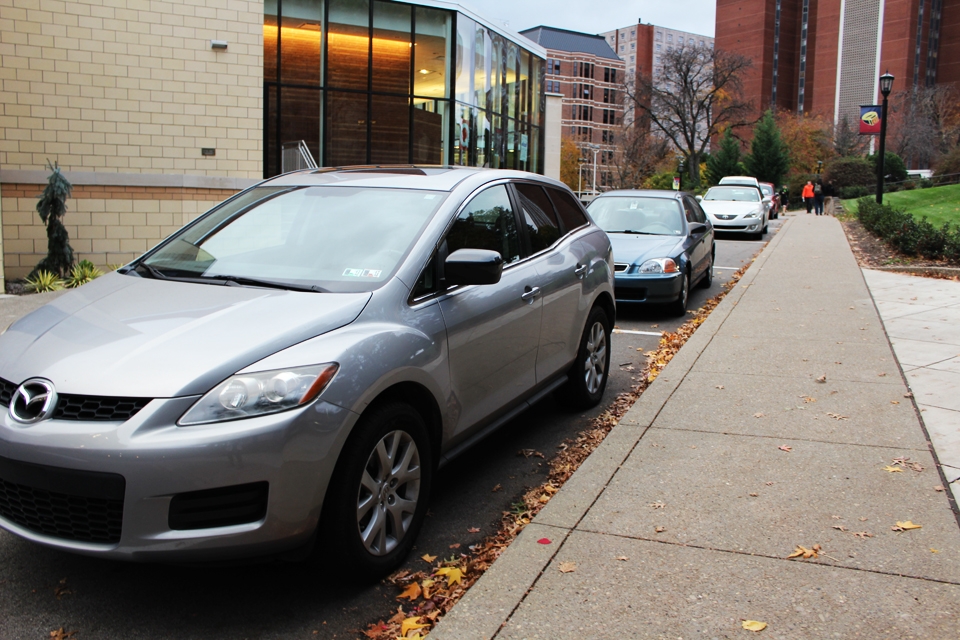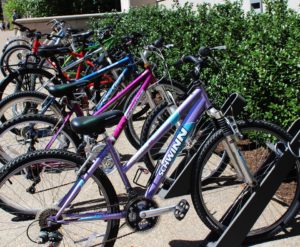

By Elsa Buehler | Staff Writer
It’s about that time of year again. As winter approaches, you can almost hear the groans of 9,500 miserable students wondering why they chose to spend their college years on the literal cliff of a campus that is Duquesne University.
No one — not walkers, bikers, drivers, residents, commuters or professors — is safe from the brutal, frigid winters that Pittsburgh is known for. If there’s any chance of enjoying the beauty of Pittsburgh in the winter, you’re going to want to prepare as soon as possible. It’s time to upgrade your wardrobe and your commute to school, before the cold weather wrecks your world.
WALKING
Whether you make the trek over the Tenth Street Bridge from the South Side or from your on-campus residence, if you’re a walker, a wardrobe adjustment is in order.
One of the best choices you can make to keep warm and cut the wind chill is to layer your clothing; removable layers also ensure that you won’t be too hot or cold in any classroom. Think undershirts, hoodies, crewnecks, thin jackets, vests and sweaters, all followed by a winter coat.
Scarves, hats and gloves are essential for protecting extremities and parts of your body that otherwise would be exposed to the elements. Boots or other sturdy shoes with enough tread to combat slush and ice are a necessity; canvas style shoes that soak easily should be avoided. Thick socks, layered if need be, are also crucial in keeping feet warm.

BIKING
Biking commuters should not be discouraged by winter weather conditions, as long as they use precaution in riding and caring for their bikes. Rich Jezowicz of Oakland’s Iron City Bikes stressed the importance of preventative maintenance for cyclists.
Jezowicz suggested switching to a wet chain lubricant to prevent the corrosion that is more likely to occur in bikes that are frequently exposed to salt, snow and slush. He also said that knobby tires, which offer much more traction, are an option for some cyclists. Other corrosion prevention maintenance would include wiping the slush and salt off of the bike after each use and storing it indoors, if possible, in accordance with your living arrangement.
According to Jezowicz, biking in snow and ice takes some getting used to. He advised that cyclists new to winter biking give themselves more time to get to class, as even experienced cyclists are forced to be cautious and ride slower in winter weather conditions.
Finally, Jezowicz encouraged bikers to wear layers while riding, though he says the amount of layers will vary from cyclist to cyclist. Intense riders, for example, may need fewer layers — as overheating and sweating in freezing temperature is not exactly healthy.
DRIVING
Both those who drive to school each day or keep cars on campus are encouraged to remember the importance of prepping their vehicles for winter, as well as keeping smart driving habits. James Clair, president and founder of local driving school Ultimate Defensive Driving, emphasized the importance of such preventative care.
Clair recommended looking over your car for a few specific things in order to ensure it is ready for the winter weather. He said to top off all fluids, make sure the defrosters are in working order and check that your tires are in good condition. Keep in mind that snow tires are an option.
Clair recalled the severe delays an intense snowstorm caused for drivers on the Pennsylvania Turnpike last winter, which left some motorists stuck on the road for up to 24 hours, according to the Pittsburgh Post-Gazette. In light of this, he advised preparing for the worst by keeping an emergency kit in your vehicle, complete with staples such as a snowbrush and ice scraper, along with a blanket, extra clothes, boots, handwarmers and a snack.
Ultimately, as Clair said, the name of the driving school references a vital tip.
“One of the most important things to remember is to always expect the unexpected,” he said.
No matter how you’re getting to class this winter, being proactive about your commute and following these tips will make sure you stay healthy and arrive safe and warm.



